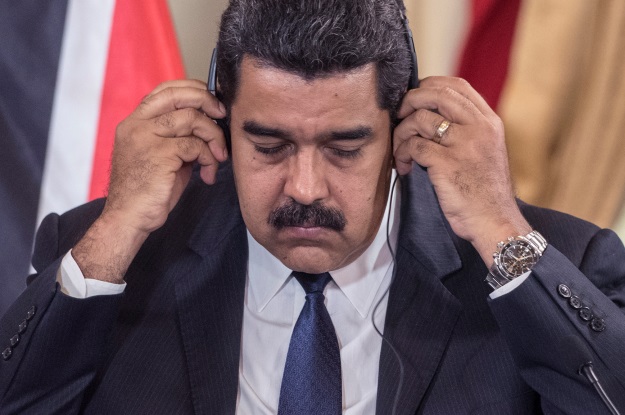While it’s tempting to describe President Nicolás Maduro’s government as crazy or erratic, a closer analysis reveals that decision-makers in Caracas operate according to a clear – and effective – set of principles.
Indeed, Maduro and his predecessor Hugo Chávez have long been aware of the fact that high-profile ruptures of democratic order – such as imprisoning all antagonistic politicians at once – risks mobilizing and unifying the domestic opposition as well as governments in the region. So, when the need to crack down on dissent or opposition arises, Maduro has opted for an incremental, two-steps-forward-and-one-step-back approach that has allowed him to effectively outfox the normative frameworks established to preserve democracy in Latin America.
Last week’s decision to bar opposition leader Henrique Capriles from running for president in 2018 is consistent with this strategy. It was also on display when Venezuela’s Supreme Court usurped the functions of the democratically elected National Assembly. After an international uproar, fully expected by government officials, Maduro asked the courts, which he controls, to back off.
What many international observers overlooked, however, was that Maduro had still achieved his primary goal, as the back-and-forth left in place comprehensive new powers for Maduro to sign oil deals for Venezuela’s state-run oil company without approval by Congress. The president now has the autonomy to launch new joint ventures with foreign firms, or to sell the country’s oil fields, which contain the world’s largest proven reserves. It is a crucial tool as in the regime’s increasingly desperate battle for survival. Last year, for example, the government pocketed half a billion dollars from the Russian state-run company Rosneft, which increased its stake in the Petromonagas joint venture.
After barring Capriles from public office for 15 years, protests ensued – and then the government decided to make a small concession and allow regional elections to go ahead. This was not a sign that Maduro’s main concern is growing international pressure. Rather, it points to Maduro’s clear belief that holding free and fair elections would almost certainly lead to chavismo’s defeat at the polls. That, in turn, would result in the prosecution of a sizeable number of current political and military leaders for involvement in drug trafficking, corruption or human rights abuses. Renewing chavismo by temporarily allowing another party to take over is not an option.
None of this suggests that Maduro is certain to remain in power. His recent moves have, at least temporarily, re-energized the formerly anemic opposition and led to renewed protests. The economy shows no signs of recovery and the full-blown economic and humanitarian crisis continues, with 82 percent of households now living in poverty. Yet there are four reasons why Maduro has a solid chance of surviving the latest controversy relatively unscathed:
1) Even if the decision to bar Capriles from running for office may temporarily galvanize the opposition, the fundamental difficulty to unite all anti-chavista groups around one single person – and vision – continues. Both Chávez and Maduro have successfully exploited divisions and rivalries between opposition groups for almost two decades. This basic dynamic will continue to reduce the opposition’s effectiveness.
2) In recent years, the greatest threat to Maduro emanated from the moderate wing of chavismo. However, by appointing as vice president the radical Tareck El Aissami – who is despised by moderate chavistas – Maduro leaves them few options but to support the President.
3) Despite a growing consensus across the region that Venezuela is no longer a democracy and a growing willingness to increase diplomatic pressure, governments from Bogotá to Asunción and Brasília to Buenos Aires are currently too distracted to prioritize the crisis in Venezuela. This is particularly true in the case of Brazil, which is unlikely to reassert its leading role in the region until a new president takes office in 2019. Lenín Moreno’s election victory in Ecuador and Evo Morales’ continued support for Caracas, along with that of several Caribbean countries, reduces the likelihood of the two-thirds vote necessary for suspension at the OAS. Within most countries, parts of left-wing opposition parties remain supportive of Maduro: After the Supreme Court’s decision to strip Congress of its legislative powers, Brazil’s Workers Party (PT) published a note in support of the Venezuelan president, defending the court’s decision.
4) After having invested billions of dollars in Venezuela, both the Chinese and the Russian governments have little interest in seeing a newly empowered opposition question the validity of their oil deals, exposing Moscow and Beijing to a legal quagmire. China, in particular, can therefore be expected to continue supporting Maduro’s government financially, even if its patience may be wearing thin.
While governments in the region are right to increase the pressure on Caracas, they must, above all, prepare for Maduro’s continued resilience. Either way, Venezuela can be expected to worry policymakers and observers in the region for years to come.









